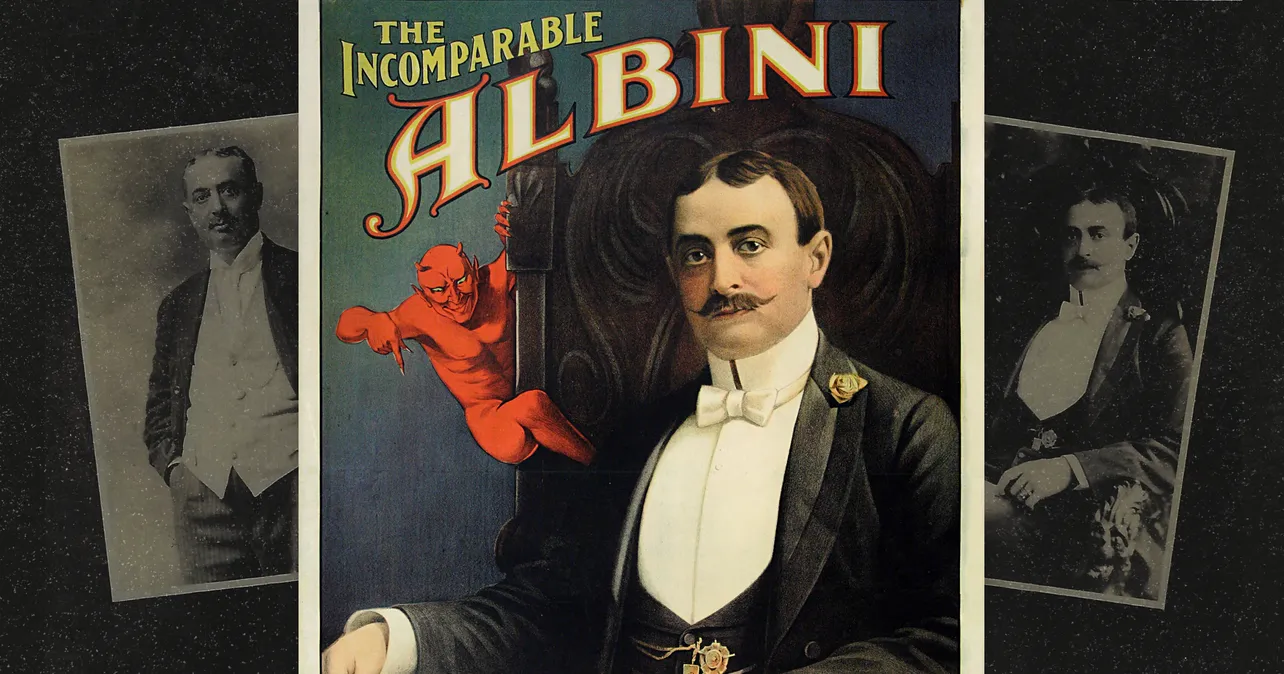I always find the relationships between magicians fascinating, and the conjurers of the past had practically the same arguments, strife, and disagreements that we see between magicians today. One of the highest-paid magicians in early vaudeville was Herbert Albini—a name you may have heard. He claimed to have created the Albini Egg Bag, and there’s a chance one of his attractive and rare lithographic posters adorns the wall of your magic collection. From this evidence, it seems he was one of the great magicians of the Golden Age of Magic. Yet, if you page through the magical press of the 19th and early 20th centuries, a different picture appears. This guy was seemingly hated by his contemporaries. Why?
It seems to have started when Abraham Laski picked the name Herbert Albini. It’s been well documented that the Polish-born Laski began his career in England as a carnival exhibitor, and first chose to call himself Rossini in the late 1870s—perhaps to capitalize on the fame of the recently deceased Italian composer Gioachino Rossini. It was during these early years as Rossini that he claimed to have developed his comedy Egg Bag, the basis of the popular versions still used today. Shortly after, he abandoned the name Rossini and became Herbert Albini, a moniker that had already proved successful for a Lieutenant Albini performing magic in England. This original Albini, born Frederick Baxter Ewing, was not happy with the appearance of the imitation Albini and in his 1881 publicity material proclaimed, “To Proprietors and Managers: I hereby caution you against engaging a person styling himself Herbert A. Albini, Conjuror and Humorist. I have proved him to be an imposter and a disgrace to the profession.” Reconciliations were attempted; in 1883, the imposter offered to the original to change his name to “Alvene” but never followed through. In the end, Mr. Laski continued to perform in England as Herbert Albini, much to the annoyance of his namesake and other magicians who had been following the story.

